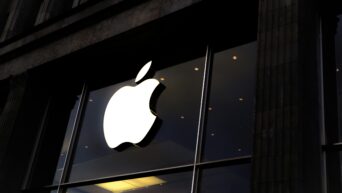When it comes to technology, a lot of people will throw computer terminology around without really knowing what it means in an attempt to sound smarter. We all have friends, acquaintances, relatives and co-workers who do this; but when it comes down to it, they don’t have any idea what the words mean. Here is everything you wanted to know about the “bytes” but were afraid to ask. Bytes are used to describe disk storage capacity or memory. A byte is composed of 8 bits, which are binary digits. According to the IBM Dictionary of Computing, a megabyte is 1,000,000 bytes in decimal notation.
However, when the term megabyte is used in the context of virtual storage, real storage, channel volume, different notation is used and the appropriate definition is 2 to the 20th power (220) or 1,048,576 bytes. Some in the computer industry and science field will emphatically state that a megabyte should always be defined as 1,048, 576 bytes because bytes are, by their very nature, computed in powers of two. Therefore, what’s happened in the industry now is that hard drive manufacturers and processor manufacturers /virtual storage providers will use different definitions of “megabyte”. However, things do get a little muddled here and there.
Hard drive manufacturers, because they use the “one million bytes equals a megabyte” formula, will advertise an 80 gigabyte hard drive that will contain 80,000,000,000 bytes of space. Windows, however, uses the other definition, and if one looks at the available storage using the properties tab, the same hard drive will only have a 74.56 gigabyte capacity. However, the total number of bytes will still be the same. The general rule of thumb to keep in mind when considering storage and processing capacity is that hard drive storage will be measured using the “1,000,000 byte” rule, and processors and virtual storage will be measured in the 220 definition of a megabyte.
Here are some more definitions concerning bits and bytes in a nutshell:
Bit: the smallest amount of information a computer can store, used to represent two states of information.
Byte: 8 bits, and can represent 256 states of information. One byte usually represents one character.
Kilobyte: 1,000 bytes or 1024 bytes depending on the definition used.
Megabyte: the equivalent of 1,000 kilobytes. A megabyte used to be a considerable amount of data; the old 3.5 inch floppy disks that were used for storage back in the early days were capable of holding 1.44 megabytes, or about a hundred pages of text.
Gigabyte: about 1,000 megabytes. To keep things in perspective, 1 GB of storage is double that of a CD-ROM. It is also 1,000 times that of an old 3.5 inch floppy disk.
Terabyte: 1,000 gigabytes. Up until quite recently it was thought that there wouldn’t be a need for most home computers to have hard drive capacities of one terabyte; however now terabyte and multi-terabyte storage is becoming more and more common. One terabyte can store around 300 hours of good quality video. The entire Library of Congress could fit into ten terabytes.
Petabyte: 1,000 terabytes.































